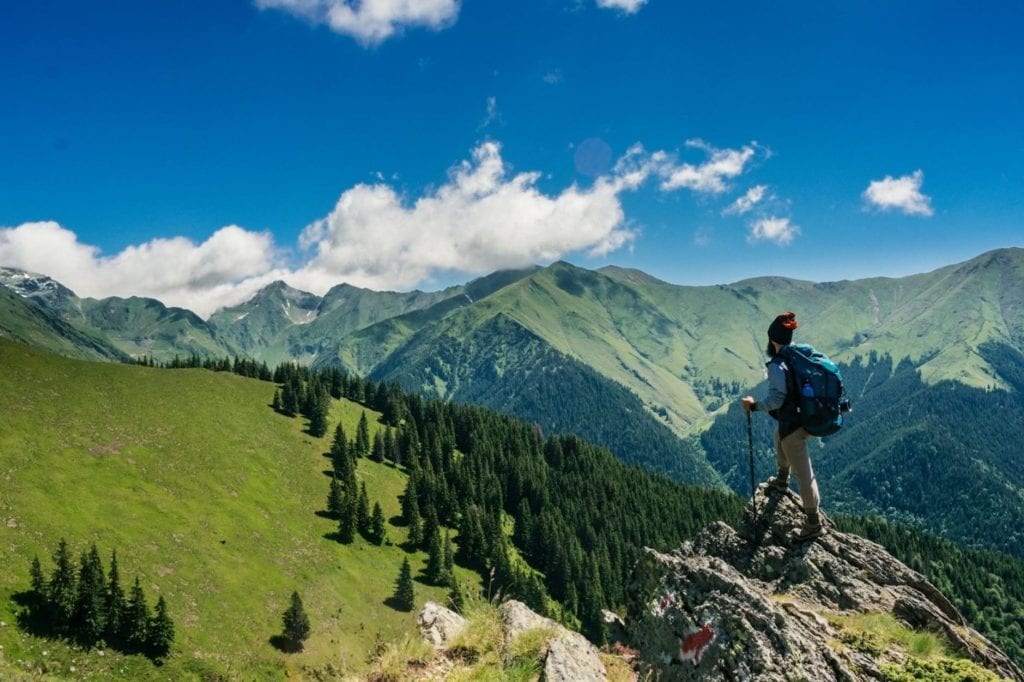There is nothing more intoxicating than being surrounded by the dense nature with no sounds of chatter and busses. You can only hear the breeze whistling through the leaves and the clamping sounds of various singing birds. Just imagine the sunlight on your skin and your lungs filling up with perfectly fresh air without the smell of big city smog.

While hiking through the wilderness and as your whole body “works out” from all that walking is fun, it is important to prepare yourself properly before you start your adventure. Here are thankfully some tips on what you should buy first before heading on a hike, especially if you are a beginner.
Good Footwear Comes a Long Way
One of the most important items to purchase for hiking is footwear. Since the choice is very personal, some hikers like more supportive boots that are over the ankle while others like wearing lightweight shoes for trail running. Depending on the terrain you are walking on, footwear choice should be influenced and the decision should be made according to it.
Sturdy boots will serve you better on a trail that is more rugged and full of streams, roots, and rocks, while low cut hiking shoes will be fine on a well-maintained path with no obstacles on its way. Whichever option you chose, it would be wise to make sure that shoes or boots are comfortable and meant for long-distance walks. Also, it is advisable to wear synthetic or wool socks and not cotton.
Fire and Shelter
The life saving outdoor skill is to know how to create fire in nasty weather conditions. There are many online tutorials that can help you prepare for that. In order to create fire, you would need to bring at least two small lighters and keep them inside of a dry place in your backpack.
As a spare, you should also have a few firestarter cubes and stormproof matches. It would be wise to use firestarters only when you really need them since they can make the fire much easier while weather conditions are wet. Also, if you are on a longer hiking trip, it would be wise to have your shelter prepared. As Brian Connelly from MyOpenCountry.com would confirm, you will still need a place to rest even if you enjoy what nature has to offer. The shelter will keep you warm and safe. Especially if you encounter unexpected weather conditions or you will have to spend the night outside. The shelter does not have to be big and outlandish.
The size can even be small and preferably lightweight. You never know what you may encounter on a regular and short hiking trip, let alone if you decide to walk over great distances. Having at least one emergency blanket with you is also a plus.
Food and Water
It can be hard to determine how much water and food you will need, especially if you are a beginner in hiking. The general recommendation is to have around 200 to 300 calorie intake per hour. It is also important that the food is protein-based. As for water, you would need about a half liter per hour if you are walking at a moderate pace. Have in mind that the amount of both would depend on several factors as well.
For instance, if your hike is of high intensity, the weather conditions, your age, the rate you are sweating, and what is your body type. With more experience you have, you will have a better idea of how many products you will need.
Proper Hygiene
The biggest contributor and source to illness in nature are dirty hands. The reason is that many hikers, unfortunately, forget about proper hygiene habits when they hit the trail. Thankfully, this issue is easy to avoid by just bringing a small container of hand sanitizer.

It can be used after any bathroom break you have so it will be safe for you to prepare your meal if you are hiking for a longer period of time. Also, speaking of a toilet break, it would be wise to bring a certain amount of toilet paper, depending on how long you plan to stay on your hike or a towel.
Before you start hiking, it is important to think first about how far you are planning to hike and how remote the location is. Also, take into consideration the weather conditions. Generally, the further you go, and the longer the walk is, the more preparation you will need and as a result, more things to bring along. So, after you have made an educated decision on what to buy, all there is left to do is to enjoy the splendors of nature.

